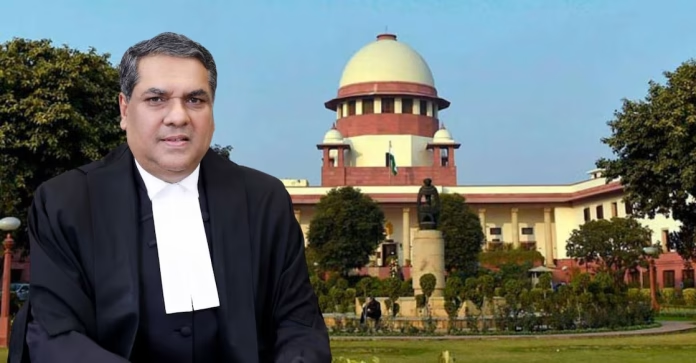– Mohd. Naushad Khan
In a major blow to the government’s theory on Waqf Act as beneficial for Muslims, the Supreme Court while hearing a bunch of pleas on the constitutional validity of the Waqf (Amendment) Act 2025 stayed the operation of some contentious provisions of the Waqf law like waqf by user and inclusion of non-Muslims in Waqf Boards and Council, till the next date of hearing on May 5. The apex court also clarified that the ‘waqf by user’ provision should not be de-notified till then.
A three-judge bench comprising Chief Justice of India Sanjiv Khanna, Justice P.V. Sanjay Kumar, and Justice K.V. Viswanathan while hearing the case, expressed serious concerns about the Act’s move to eliminate “waqf by user”, a practice where properties like mosques or graveyards are recognised as Waqf based on long-term use, often without formal deeds. The bench warned that de-notifying ‘waqf by user’ could have “huge consequences”.
The bench pointed out that many mosques built between the 14th and 16th centuries wouldn’t have sale or registration deeds, making documentation impossible.
CJI Khanna asked, “How will you register in the case of ‘waqf by user’? Solicitor General Tushar Mehta argued that usage would not stop, only benefits would be withheld until a decision is made. The CJI countered, “What will happen then? Where will the rent go? Why have those provisions then?”
The court also questioned the provision allowing non-Muslims on Waqf Boards and asked if the Centre would reciprocate by including Muslims on Hindu endowment boards. Another contested clause prevents a property from being treated as waqf during a collector’s inquiry into whether it’s government land, SC said this will not be given effect.
Notably, during an argument with Solicitor General Tushar Mehta, the CJI said, “When we sit on the Bench, we belong to no religion. No, I’m sorry, Mr. Mehta. We are not talking just about adjudication. When we sit here, we no longer remain adherents of any religion. We are completely secular. For us, both sides are equal.”
Surprisingly, ahead of the SC hearing on petitions against the Waqf Act, Kiren Rijiju minister for Minority Affairs said he is confident the apex court would not comment on a legislative matter and that the legislature and the judiciary need to respect each other. Many believe that it was aimed at bullying the judiciary. Another attempt was made to target the judiciary when Vice President Jagdeep Dhankhar questioned the judiciary as acting as a “Super Parliament”, saying the Supreme Court cannot fire a “nuclear missile” at democratic forces.
According to Jagmohan Singh, Convener of Sikh Personal Law Board, “It sounds comfortable to listen to the Supreme Court admonishing the Government on the Waqf Act, especially about inclusion of non-Muslims on the Waqf Council and Boards. Putting a stay on the waqf by user clause and the appointment of non-Muslims to Waqf Boards till the next date of hearing, is a welcome decision.”
“We are concerned that these statements in open court should become part of the judgement or interim orders and the government should not be allowed to go scot-free only on the basis of oral submissions. The amendments must be withdrawn. It is encouraged to see that a Sikh activist has also filed an impleading petition against the Waqf amendments,” he said.
“The fact that Solicitor General Tushar Mehta has had to give an assurance to the Supreme Court that no further action will be taken until the next hearing in early May shows that there are restrictions being put on the government’s unseemly haste to pass the bill,” said Aamir Ali, who teaches at JNU.




